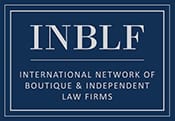Green package, product guides attempt to be current
November, 2012
By Eric F. Greenberg, Attorney-at-Law
People want to be up on things, and so do government agencies, which would rather be perceived as relevant and useful than not. On that score, you might be inclined to give the Federal Trade Commission a low grade for coolness when it issued environmental claims guidance in October 2012 and did not include the terms “sustainable,” “natural,” or “organic.”
Upon further review, they have some pretty good reasons for leaving them out. But regardless, industry is left with guidelines that don’t address some of the most popular environmental terminology in today’s marketplace.
FTC says the terms “natural” and “organic” are already the subject of definitions and guidance by the Food and Drug Administration, and the USDA’s National Organics Program, respectively, and FTC didn’t want to duplicate or contradict their efforts. FTC also said it lacked a “sufficient basis to provide meaningful guidance” about use of the term “sustainable,” even though, if you look at consumer product labeling and advertising today, it’s clear that the term “sustainable” is totally groovy, as the young people say (they do still say that, don’t they?). More on that later.
FTC’s so-called “Green Guides” were first issued in 1992, and have been revised along the way. In October, FTC announced its latest revisions, which it had proposed back in 2010. Check them out at FTC’s Web site, www.ftc.gov/os/2012/10/greenguides.pdf.
The inspiration behind these guides has always been to help industry know how the agency would interpret the meanings of key terms being used in advertising and on labeling. This in turn would help make sure claim terminology was being used consistently, which in turn would reduce consumer confusion or deception.
The first guidance in 1992 tried to put some shape around terminology that was common or emerging on labels then-“recyclable,” “degradable,” and “environmentally friendly,” for example.
The guides have provided undeniable value to companies wanting to mention environmental features but not wanting to be accused of confusing or misleading consumers. They have led to more consistent use of common terminology and have caused more packagers to provide specifics about the meaning of generalized or vague terminology, clarifying when a claim of, say, recycled content, applies to the packaging or the product itself, and assuring that the company has on hand the substantiation (proof) of any assertion they make. The guides encourage all these practices because FTC believes consumers get better information that way.
FTC, relying on Section 5 of the Federal Trade Commission Act, can order companies to stop making deceptive claims and impose fines if the orders are violated. “The FTC has brought several actions in recent years related to deceptive recyclability, biodegradable, bamboo, and environmental certification claims,” it says.
This article is informational only and is not intended as, and should not be considered to be, legal advice.
Be sure to check for any updated information about the topics discussed in this article.


